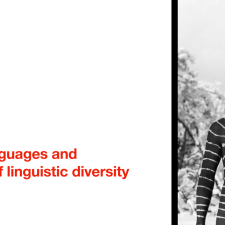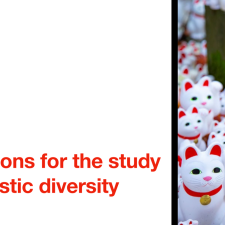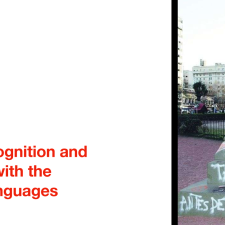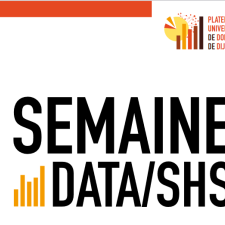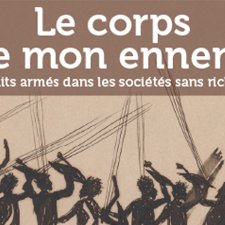Chapitres
Notice
Unraveling linguistic diversity through the lens of natural experiments │ Lecture III │ D. E. Blasi
- document 1 document 2 document 3
- niveau 1 niveau 2 niveau 3
Descriptif
In this course we will approach the study of worldwide linguistic diversity under the point of view of observational statistical inference. The guiding question of the course will be: what can be learned about the nature of language given the limited and contingent sample of languages that we got to observe and document? We will investigate what can be inferred from the aggregation of comparative linguistic data (including large-scale typological datasets,
→Strands 1+2+3), and what models of human cognition, behavior, and history are implied by those inferences. The course will be interdisciplinary but tailored for non specialists, combining comparative linguistics, biological anthropology, statistical inference, cultural evolution, as well as an array of observations from other disciplines.
III. Recent human history and the cultural evolution of languages
The Holocene (covering the last 12,000 years of human history) has seen our species undergo profound changes at the social, cultural, and even biological levels of description. We discuss how these changes have left a trace in contemporary linguistic diversity (→Strand 3), and how to aggregate evidence -from genetics to paleoanthropology and paleodemography- to reconstruct them.
Intervention / Responsable scientifique
Avec les mêmes intervenants et intervenantes
-
Unraveling linguistic diversity through the lens of natural experiments │ Lecture IV │ D. E. Blasi
BlasiDamián E.Cycle de conférences du Prof. Damián Blasi │ dans le cadre de la chaire internationale du Labex EFL au mois d’avril 2025. Pour une série de quatre séminaires sur le thème « Unraveling linguistic
-
Unraveling linguistic diversity through the lens of natural experiments │ Lecture I │ D. E. Blasi
BlasiDamián E.Cycle de conférences du Prof. Damián Blasi │ dans le cadre de la chaire internationale du Labex EFL au mois d’avril 2025. Pour une série de quatre séminaires sur le thème « Unraveling linguistic
-
Unraveling linguistic diversity through the lens of natural experiments │ Lecture II │ D. E. Blasi
BlasiDamián E.Cycle de conférences du Prof. Damián Blasi │ dans le cadre de la chaire internationale du Labex EFL au mois d’avril 2025. Pour une série de quatre séminaires sur le thème « Unraveling linguistic
Sur le même thème
-
Unraveling linguistic diversity through the lens of natural experiments │ Lecture II │ D. E. Blasi
BlasiDamián E.Cycle de conférences du Prof. Damián Blasi │ dans le cadre de la chaire internationale du Labex EFL au mois d’avril 2025. Pour une série de quatre séminaires sur le thème « Unraveling linguistic
-
Unraveling linguistic diversity through the lens of natural experiments │ Lecture IV │ D. E. Blasi
BlasiDamián E.Cycle de conférences du Prof. Damián Blasi │ dans le cadre de la chaire internationale du Labex EFL au mois d’avril 2025. Pour une série de quatre séminaires sur le thème « Unraveling linguistic
-
La continuation des fastes d’Ovide par les Dijonnais Claude-Barthelemy Morisot : l’analyse stylomét…
La présentation commencera par une brève contextualisation de la recherche: Claude-Barthélemy Morisot (auteur Dijonnais du XVIe siècle) a complété l’œuvre de fastes d’ovide, en écrivant les 6 livres
-
La guerre des concepts
DarmangeatChristopheles conflits collectifs échappent encore à une typologie raisonnée. On proposera une classification permettant d'aborder les confrontations sociales, qui se fonde à la fois sur leurs mobiles et sur


